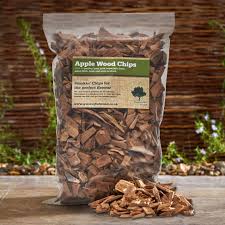![]()
If you’ve landed on this article page, you’re probably searching for a
good business idea—an idea that’s light on the pocket but heavy on
returns, promising both a fulfilling journey and potential profit.
|
How to start a wood chip Production Business in Nigeria
Wood chip
manufacturing is a thriving industry that plays a vital role in
various sectors, including agriculture, forestry, energy, and
construction. Wood chips are small pieces of wood obtained by
chipping or shredding larger logs or timber. These chips serve
as a versatile raw material used in applications such as fuel
for biomass power plants, animal bedding, landscaping mulch,
paper production, and composite materials.
Thorough
market research is essential to understand the demand and
potential customers for wood chips. This includes analyzing the
current and projected market size, identifying key industry
players, and evaluating customer preferences and requirements.
Conducting surveys, interviews, and focus groups can provide
valuable insights into the needs, challenges, and purchasing
behavior of potential customers.
Examining
demand and supply trends helps in assessing market dynamics,
pricing fluctuations, and supply chain challenges. It involves
studying factors such as the growth rate of biomass power
plants, government policies, environmental regulations, and the
availability of raw materials. By understanding these trends,
entrepreneurs can make informed decisions regarding production
capacity, pricing strategies, and market entry timing.
Estimating
the startup costs and capital requirements: Determining the
initial investment required to start your wood chip
manufacturing business is crucial for securing financing.
Start-up costs may include the purchase or lease of land,
machinery and equipment, raw materials, permits and licenses,
marketing expenses, and working capital. Conducting a detailed
cost analysis and budgeting process helps in estimating the
required capital and identifying potential funding sources.
Procuring
Equipment and Machinery: Selecting the appropriate machinery and
equipment is vital for efficient and high-quality wood chip
manufacturing. This includes chippers, grinders, shredders,
screening equipment, conveyors, drying systems, and storage
containers. Researching reputable suppliers, comparing equipment
specifications, and considering factors such as production
capacity, energy efficiency, and maintenance requirements are
essential for making informed purchasing decisions.
Purchasing or
leasing equipment based on your budget and production needs:
Deciding whether to purchase or lease equipment depends on your
budget, production volume, and long-term business goals.
Purchasing equipment provides ownership and control but requires
a larger upfront investment. Leasing equipment can provide
flexibility, lower initial costs, and potential tax advantages.
Analyzing the financial implications and consulting with
equipment finance specialists can help in making the best
decision for your wood chip manufacturing business.
Understanding
the wood chipping process: Understanding the wood chipping
process is fundamental for efficient and productive operations.
The process involves feeding logs into chippers or grinders,
where they are cut or shredded into small wood chips. Depending
on the desired end product, additional steps such as screening,
drying, or further processing may be required. Implementing best
practices, optimizing machinery settings, and training employees
on safety protocols enhance productivity and product quality.
Selecting
appropriate packaging materials for wood chips: Choosing the
right packaging materials is essential for preserving the
quality and ensuring the safe transportation of wood chips.
Factors such as moisture resistance, durability, and
environmental considerations should be taken into account.
Packaging options may include bags, bulk containers, or
customized packaging solutions. Conducting packaging trials,
considering customer preferences, and complying with packaging
regulations contribute to efficient and attractive packaging.
Providing
excellent customer service: Delivering excellent customer
service is crucial for building long-term relationships and
fostering customer loyalty. This includes timely and responsive
communication, addressing customer inquiries or concerns
promptly, and providing after-sales support. Implementing
customer feedback mechanisms and continually improving your
products and services based on customer input demonstrates your
commitment to meeting customer needs and exceeding their
expectations.
The wood chip
manufacturing industry is expected to continue growing in the
future due to increasing demand for renewable energy sources,
sustainable materials, and eco-friendly solutions. Future trends
may include advancements in technology, such as smart
manufacturing and automation, as well as the emergence of new
markets and applications for wood chips. Embracing
sustainability, innovation, and strategic partnerships can
position your business for long-term success in this evolving
industry.
|







